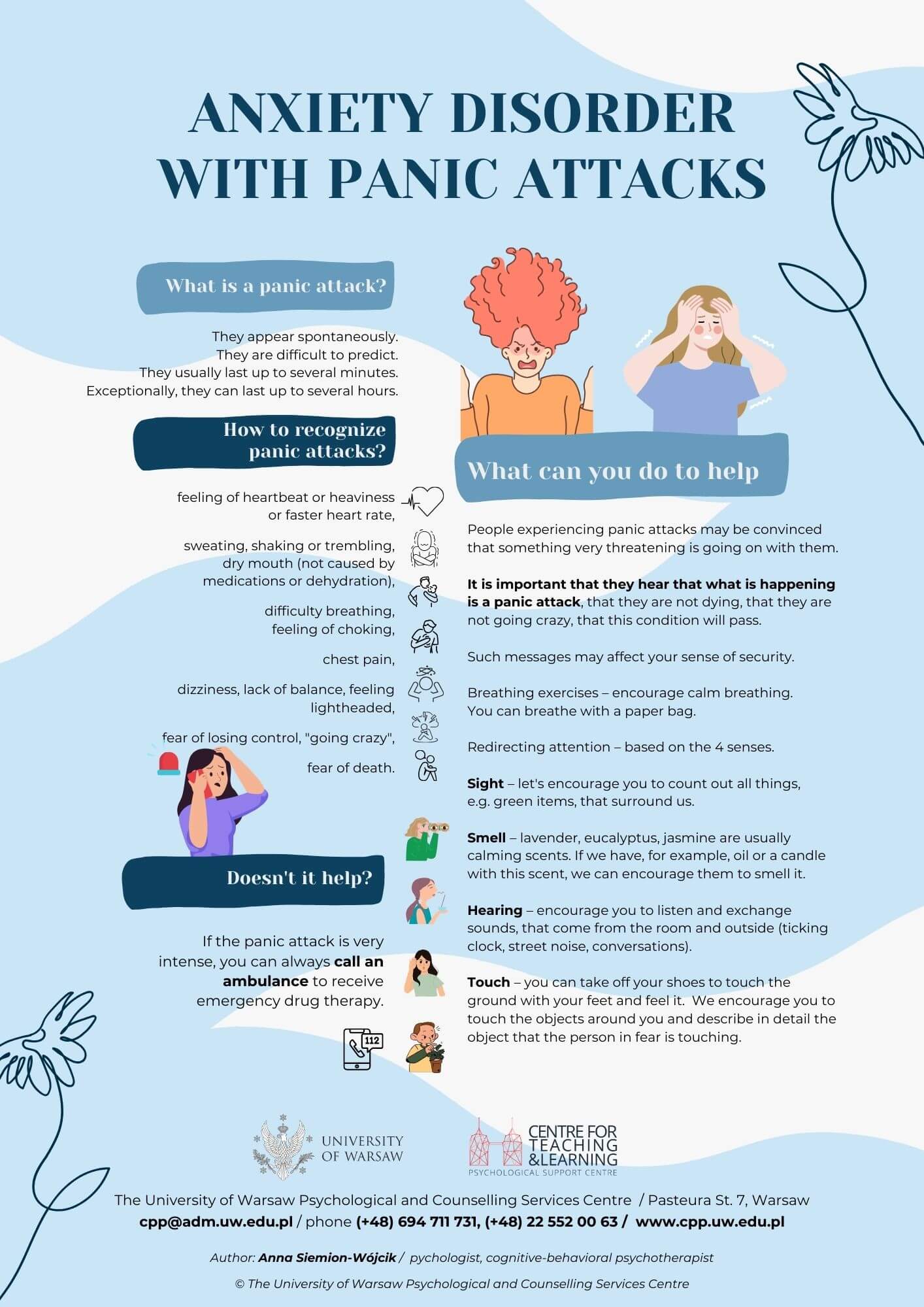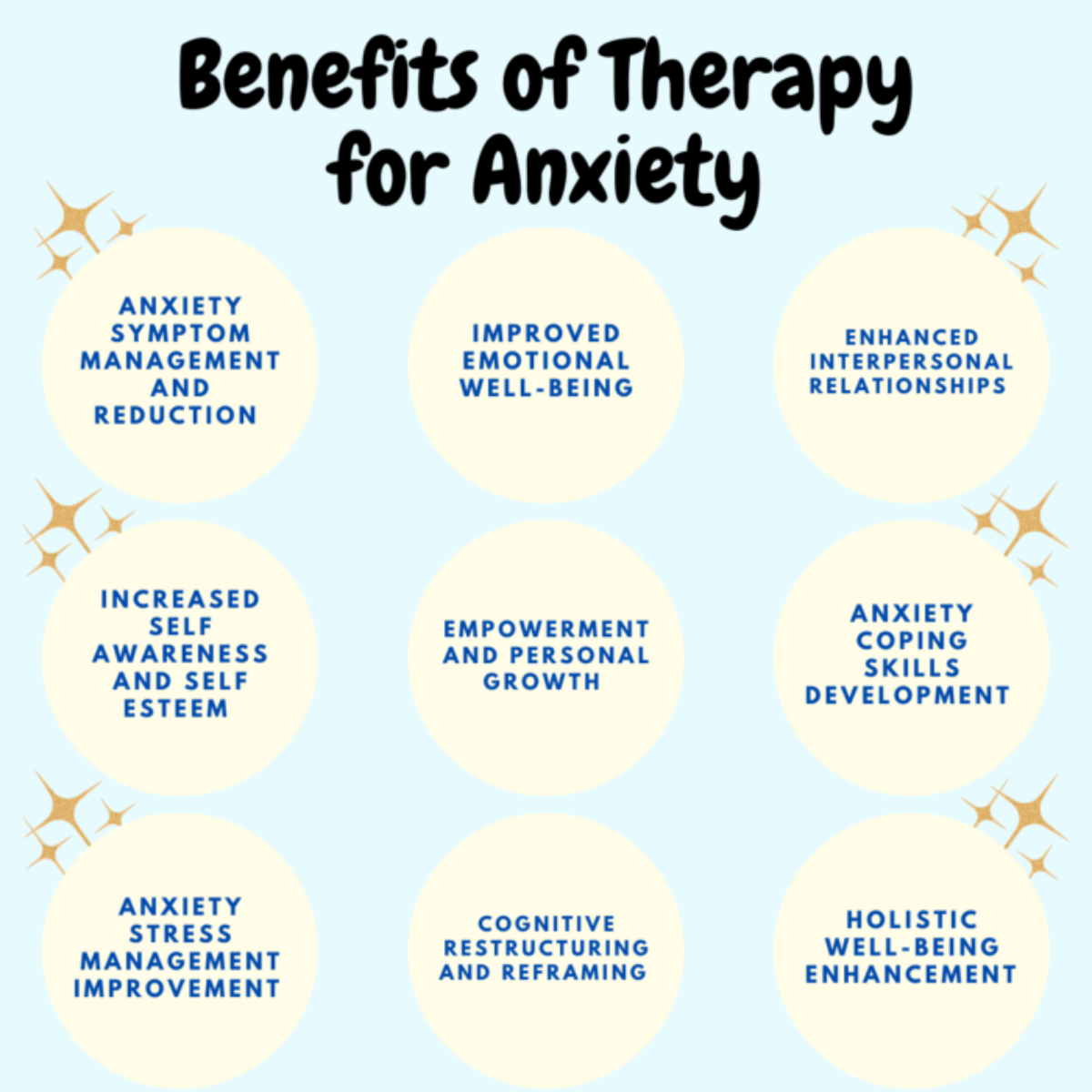Start your journey with counselling for anxiety disorder guided by professionals
Start your journey with counselling for anxiety disorder guided by professionals
Blog Article
Discovering Various Approaches in Counselling for Stress And Anxiety Condition for Long Lasting Modification
When taking on anxiousness problems, it's important to check out a range of therapy techniques. Each technique uses one-of-a-kind understandings and devices to aid you handle your symptoms effectively. You could discover that incorporating strategies can produce the very best outcomes. Recognizing the nuances of these techniques is key to cultivating long-term adjustment. Suppose the best combination could release a new level of psychological health for you?
Comprehending Anxiousness Conditions: A Short Summary
Stress and anxiety conditions, which impact countless people worldwide, can substantially affect everyday life. You might experience frustrating feelings of fear or worry that appear uncontrollable. These sensations can cause physical signs like an auto racing heart, sweating, or also dizziness. Usual types of anxiety problems include generalised stress and anxiety problem, panic problem, and social anxiousness disorder. Each has one-of-a-kind indicators, but they all share a propensity to disrupt your regular and relationships.Understanding the source of your anxiety is crucial. It might come from genetics, brain chemistry, or life experiences. Recognizing your triggers can assist you manage your actions better. It is very important to bear in mind that you're not alone in this battle. Many individuals deal with comparable challenges, and seeking help is a solid step toward sensation much better. By learning more about anxiousness disorders, you're already on the course to understanding and managing your condition better.
Cognitive-Behavioral Treatment: Testing Negative Thought Patterns
In Cognitive-Behavioral Therapy, you'll start by recognizing the unfavorable idea triggers that add to your stress and anxiety. You'll function on replacing them with more favorable choices when you recognize these thoughts. With each other, you'll build effective coping methods to aid handle your anxiety in daily circumstances.
Identifying Unfavorable Idea Triggers

Recognizing the specific triggers behind your adverse ideas can be necessary in handling anxiety when you experience minutes of distress. Beginning by taking notice of scenarios that prompt feelings of concern or concern. Is it a crowded space, a forthcoming target date, or a conversation with certain people? Write these circumstances in a journal. This will certainly help you recognize patterns in your thinking. Additionally, notification physical sensations that accompany your adverse ideas, like a racing heart or tightness in your breast. By determining these triggers, you acquire understanding right into what's sustaining your stress and anxiety. Comprehending these connections is the initial step in challenging those ideas and inevitably regaining control over your emotional feedbacks.
Replacing Ideas With Positives
Challenging unfavorable idea patterns is a vital action in changing your attitude and minimizing stress and anxiety. You might typically find on your own entraped in cycles of insecurity or disastrous thinking. Rather of letting these ideas dictate your feelings, practice changing them with favorable affirmations or sensible options. When you think, "I can't handle this," change it to, "I can manage obstacles one step at a time." This easy adjustment can considerably impact your emotion. On a regular basis identifying and countering these negative thoughts helps create a much healthier interior dialogue. Remember, it takes time and initiative, yet continually practicing this strategy can result in long lasting adjustment, equipping you to deal with stress and anxiety with renewed confidence and durability.
Structure Coping Approaches Together
Changing unfavorable thoughts is just the beginning of managing anxiety properly. To develop lasting modification, you require to construct coping techniques that empower you. Cognitive-Behavioral Therapy (CBT) assists you identify and test those unhelpful thought patterns. With each other, you and your counselor can discover just how these thoughts influence your feelings and behaviors.Start by creating functional strategies, like journaling or mindfulness exercises, that allow you to challenge stress and anxiety head-on. When you face your worries gradually, you'll discover to react in a different way.

Mindfulness and Acceptance-Based Approaches: Growing Present-Moment Awareness
As you browse the complexities of anxiety, integrating mindfulness and acceptance-based techniques can considerably improve your capacity to grow present-moment understanding. By focusing on the below and now, you'll discover that you can observe your ideas and feelings without judgment (Counseling services for anxiety). This technique aids you acknowledge your anxiousness without feeling bewildered by it.Engaging in mindfulness exercises, such as deep breathing, body scans, or directed reflections, allows you to ground yourself in your existing experience. Acceptance-based strategies motivate you to embrace your feelings as opposed to deal with versus them. They lose their power over you.Incorporating these techniques into your day-to-day regimen can transform just how you react to anxiety when you accept your feelings. You'll establish strength and find out to navigate stressful situations with better convenience. Ultimately, cultivating present-moment recognition lays the foundation for long lasting change, empowering you to lead a much more fulfilling life
Exposure Therapy: Challenging Fears Gradually
Exposure treatment aids you face your anxieties in a gradual method, making it much less frustrating. You'll discover methods to encounter anxiety-provoking situations detailed, while also developing coping strategies click here to manage your responses. This approach equips you to take control and reduce stress and anxiety in time.
Gradual Direct Exposure Techniques

When facing anxiousness, gradually facing your worries can be a powerful means to regain control. This strategy, referred to as progressive exposure, includes gradually exposing on your own to the circumstances or objects that trigger your anxiousness. Start with much less intimidating scenarios and progressively work your way approximately more challenging ones. For instance, if you're terrified of public talking, you could start by speaking before a mirror, after that proceed to sharing ideas with a good friend, and eventually attend to a small team. Each action helps desensitize you to the concern, constructing your confidence gradually. Bear in mind, it's vital to rate on your own and celebrate small success as you relocate via this process, reinforcing your capability to handle anxiousness properly.
Building Coping Strategies
Building effective coping methods is crucial for managing anxiety, especially as you confront your worries slowly - Counseling services for anxiety. One powerful technique is exposure therapy, where you start by facing your worries in a regulated way. Begin with less daunting circumstances and slowly work your way up to more challenging scenarios. This gradual direct exposure assists desensitize you to stress and anxiety activates, making them much less overwhelming.Incorporate relaxation methods, such as deep breathing or mindfulness, to calm your mind during direct exposure. Track your progression, commemorating little success in the process to increase your confidence. Bear in mind, it's all right to take your time; the objective isn't perfection but steady improvement. By constructing these strategies, you'll empower on your own to browse stress and anxiety and embrace life more totally
Psychodynamic Treatment: Discovering Origin of Stress And Anxiety
Psychodynamic treatment explores the unconscious mind, exposing the origin causes of your anxiety. By examining your ideas, sensations, and past experiences, this strategy aids you uncover underlying disputes and unsettled concerns that may add to your current anxiousness. You'll collaborate with a therapist to check out childhood experiences, connections, and psychological patterns that shape your responses today.As you obtain insight right into these much deeper layers of your psyche, you'll begin to recognize how past occasions influence your present actions. This understanding can result in catharsis, enabling you to process feelings you might have suppressed.Through the therapeutic relationship, you can additionally identify protection systems that might have created over time, supplying a clearer path to alter. Ultimately, psychodynamic therapy equips you with the devices to resolve your stress and anxiety at its core, promoting enduring makeover in your emotional health.
Holistic and integrative Strategies: Incorporating Strategies for Greater Efficiency
Incorporating different restorative techniques can improve your trip towards managing anxiousness better. By incorporating components from cognitive-behavioral treatment, mindfulness practices, and all natural methods, you can develop an individualized approach that addresses your special requirements. As an example, you could utilize cognitive-behavioral techniques to challenge unfavorable thought patterns while including mindfulness workouts to ground yourself in the existing moment.Additionally, exploring all natural methods such as yoga or meditation can promote relaxation and decrease anxiety signs and symptoms. This mix permits you to establish higher self-awareness and resilience.Experimenting with these diverse methods can assist you find what reverberates most with you. Bear in mind, it's concerning locating a harmony that works, instead of sticking to a solitary strategy. This integrative approach not only supplies instant relief but additionally fosters long-term skills for taking care of anxiety, encouraging you to reclaim control over your life.
The Function of Support Equipments: Building Durability Through Connection
While it could seem that handling anxiety is a solitary trip, having a strong support group can play a crucial role in your strength. Surrounding on your own with understanding friends, family, or support teams develops a secure space where you can freely share your feelings and experiences. You advise on your own that you're not alone in this struggle.These relationships use encouragement and can give functional coping methods that have functioned for others when you link with others. It's additionally a possibility to obtain viewpoint; good friends can aid you see circumstances in different ways, minimizing feelings of isolation.Moreover, psychological support promotes a sense of belonging, which can considerably alleviate anxiety signs. By leaning on your support system, you can develop durability and take on difficulties better. Remember, connecting for aid is an indication of toughness, and it can make all the difference in your journey toward handling stress and anxiety.
Regularly Asked Inquiries
What Are the Usual Signs And Symptoms of Anxiousness Conditions?
You might experience restlessness, fatigue, trouble concentrating, impatience, muscle tension, and sleep disruptions. Physical signs and symptoms can include rapid heartbeat, sweating, and trembling. Recognizing these indicators early can assist you look for suitable assistance and treatment.
Just How Long Does Treatment Commonly Last for Stress And Anxiety Problems?
Therapy for anxiety conditions usually lasts anywhere from a few weeks to several months. It actually relies on your individual needs, progression, and the strategies your specialist utilizes to assist you manage your stress and anxiety successfully.
Can Drug Be Made Use Of Along With Therapy for Anxiousness?
Yes, medication can certainly be made use of alongside treatment for stress and anxiety. Combining both approaches often boosts treatment performance, aiding you handle signs while discovering underlying concerns via counseling (Counseling services for anxiety). Constantly consult your medical care supplier for personalized guidance
Exist Self-Help Techniques for Taking Care Of Stress And Anxiety?
Yes, there are a number of self-help techniques for managing anxiety. You can exercise mindfulness, engage in regular exercise, preserve a well balanced diet, establish a regular, and utilize deep breathing strategies to aid decrease stress and anxiety symptoms successfully.
How Do I Know if I Need Expert Assistance for Anxiousness?

Report this page